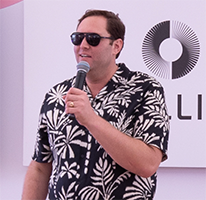IN THE LATE 1980s, GIANT PROMOTION FIRMS FROM ENGLAND STALKED the earth,making the marketing scene a different world from today. Companies such asFKB, KLP, and Clarke Hooper went public on the London market and -proclaiming sales promotion to be the wave of the future – began buyingagencies in the U.S. and elsewhere abroad.
By decade’s end, the stocks of publicly traded U.K promo agencies hadnose-dived. The party was over. FKB, which itself had purchased seven U.S.shops, all but disappeared. U.S. firms including Louis London and QLM wererepurchased by their founders in various states of disrepair, and thesecond British invasion of modern times came to a close.
If there is a lesson here for today’s agency execs at global consolidatorslike BBDO and The Marketing Store, it is the need to ensure that thestrategic vision at headquarters is matched by strong management locally,where promo companies are ultimately judged.
Those were the chief words of wisdom from four old warhorses who held forthat the London meeting of the Association of Promotion Marketing AgenciesWorldwide in April. The industry pioneers – with a total of more than 100years of agency-side experience between them – were on the dais to offerinsights on how to run an agency.
Keith Bantick recalled how his company took a different course from manyothers in the freewheeling ’80s. “In 1985, our main competitors in the U.K.- FKB, KLP, Clarke Hooper, and others – went to the stock market to becomepublic companies. Their strategy was clear: Use the cash to buy othercompanies ’round the world and quickly develop the global networks clientswere demanding. We were tempted to do the same.
“We considered going public, but we realized we had a weakness. We didn’thave management deep enough for us to be able to manage the companies wemight take over. So we played to our strength as the leading creativecompany in the U.K. We sought out an international group that needed asales promotion division and could provide us with the resources we neededto grow internationally.
“We did the opposite of the competition. Within two years, we had a networkin 17 countries and an excellent working relationship. Our vision was tocombine promotion, direct marketing, public relations, and advertising intowhat Ogilvy & Mather called “orchestration.” It was a marvelous idea, butthe company that took us over [WPP] didn’t agree with it. Perhaps I shouldhave hung in there, lied a bit, and done it anyway.”
Barry Clarke offered to “share some of my favorite quotes, rather thanparaphrase myself.”
Instruction to a radio deejay: “Be able to say what you have to say ineight seconds or get out. If you have nothing to say, then play the nexttrack. Repeat. Pause. Repeat.” – Anonymous.
“Your job is to empty the client’s in-tray.” – Ralph Glendinning, 1960s.
“This is the perfect job for existentialists.” – John Hooper, 1975.
“You’ll do much better to go public than to sell.” – Stockholders, 1984.(“We did the dumb thing and went public,” he added.)
“We land in New York in 20 minutes. Think mean.” – Man in next seat, 1992.
“Dinosaur syndrome kills companies. The corporate body gets too big for thebrain supporting it.” – Deputy chairman, Sony Corp.
“If you make money every month, you’ll be profitable at year-end.” – CarlSpielvogel.
“Change is not what it used to be. Therefore, it’s pointless to predict thefuture.” – Anonymous.
“Remember to say, ‘Thank you for having me.'” – Cicely Clarke (Mom), 1946.
Brian Francis focused on points toward achieving success.
“Look after your people. Motivation is an extremely important part of thisbusiness. Pay your employees top money. Badly paid good people can bedangerous to your agency’s health.
“If your agency doesn’t have its own distinct culture, it won’t last very long.
“Trust your intuition over objective judgment. Listen to your inner voice.I’m a great believer in gut feelings.
“Beware of the [financial] man in the striped suit. He wants the deal, notthe long run. Most analysts of our industry are about 26 years old.
“Know your restaurants and wine lists. Get to know the headwaiter, how toget the best table. Clients figure if you can fix that world, you can dopromotions.
“Consumers are motivated by greed and sloth. Greed, as in something fornothing; sloth as in ‘Get to the point quickly.’
“My mother, a Cockney lady now 92 years old, keeps asking me when I’m goingto get a proper job. Well, I’m glad I never got a proper job, and it’s toolate for me to get one now.”
Joe Flanagan proffered some of Father Flanagan’s wisdom.
“Have a clear vision of what you want to be. Develop a business plan andlook at it carefully every 120 days. Use 1,000 days or some other specialdate as your deadline for achieving results.
“Keep your clients’ business needs – not the agency’s new-business needs -first in mind.
“Spend on training until it hurts. Doing so will produce long-term agencyhealth and well-being.
“During good times, watch your flanks. Don’t become lax or arrogant. Don’tfall into the trap of hearing so many good things you begin to believe them.
“Weave risk-taking into routine business practices.”
For what it’s worth – and, for these four, it was worth a lot.
 Network
Network

